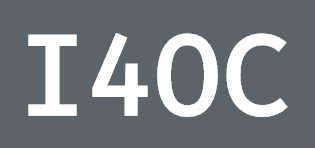It’s Time for Open Citations
Mozilla is signing on to the Initiative for Open Citations (I4OC). We believe open data is integral to a healthy Internet — and to a healthy society.
Today, Mozilla is announcing support for the Initiative for Open Citations (I4OC), an effort to make citation data from scholarly publications open and freely accessible. We’re proud to stand alongside the Wikimedia Foundation, the Public Library of Science and a network of other like-minded institutions, publishers and researchers who believe knowledge should be free from restrictions. We want to create a global, public web of citation data — one that empowers teaching, learning, innovation and progress.
Currently, much of the citation data in scholarly publications is not easily accessible. From geology and chemistry journals to papers on psychology, the citations within are often subject to restrictive and confusing licenses which limit discovery and dissemination of published research. Further, citation data is often not machine readable — meaning we can’t use computer programs to parse the data.
 Mozilla understands that in some cases, scholarly publications themselves must be protected or closed in order to respect proprietary ecosystems and business models. But citations are snippets of knowledge that allow everyone to engage with, evaluate and build upon ideas. When citations are inaccessible, the flow of knowledge stalls. Innovation is chilled. The results are damaging. At Mozilla, we believe openness is a core component of a healthy Internet and a healthy society. Whether open citations or open source code, openness allows people to learn from each other, share ideas and foster collaboration.
Mozilla understands that in some cases, scholarly publications themselves must be protected or closed in order to respect proprietary ecosystems and business models. But citations are snippets of knowledge that allow everyone to engage with, evaluate and build upon ideas. When citations are inaccessible, the flow of knowledge stalls. Innovation is chilled. The results are damaging. At Mozilla, we believe openness is a core component of a healthy Internet and a healthy society. Whether open citations or open source code, openness allows people to learn from each other, share ideas and foster collaboration.
I4OC details
I4OC seeks to uphold this openness in the realm of scholarly research. Specifically, I4OC calls for citation data that is structured, separable and open. That means:
Structured ensures citation data is presented in a universal, machine-readable format. This empowers computer programs to unpack and draw connections between different research areas.
Separable ensures citation data can be accessed and analyzed without the need to comb through entire journal articles or books. This allows people to navigate research easily, the same way people navigate the web.
Open ensures citation data is free to access and free to reuse. This allows anyone — students, teachers, entrepreneurs, autodidacts — to benefit.
I4OC is asking scholarly publishers to deposit their citations in Crossref and enable reference distribution. Crossref is a nonprofit organization developing infrastructure and services for scholarly publishers.
We’re already seeing progress. Since the start of I4OC in 2016, the percentage of publishers sharing citations has jumped from 1% of Crossref’s 35 million articles (that include citation data) to over 40%.
That’s heartening, but there’s still a long way to go. We want that number to reach 100%. We want openness to become the norm, not the exception. That’s why Mozilla is supporting I4OC. And that’s why Mozilla is committed to teaching and defending openness online. Want to learn more? Read Mozilla’s Internet Health Report to see how openness makes the Internet exceptional. And sign our petition to open up access to federally-funded research in the U.S.
- Login to post comments